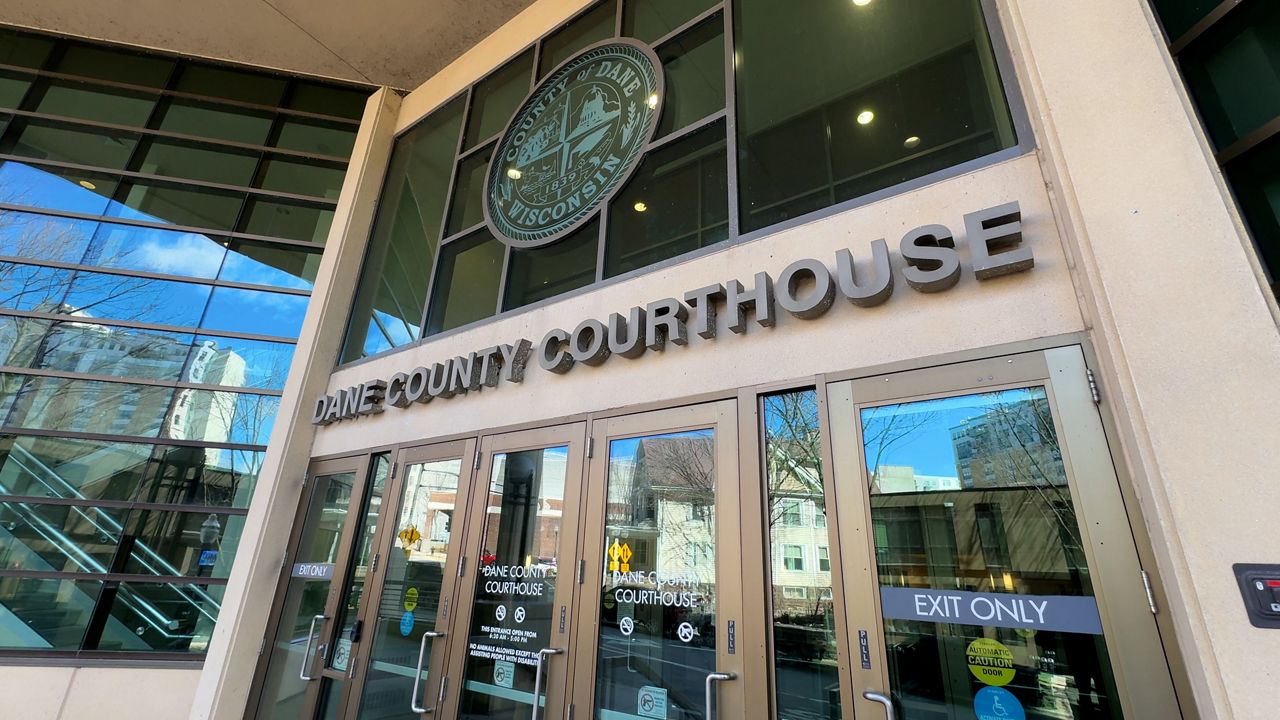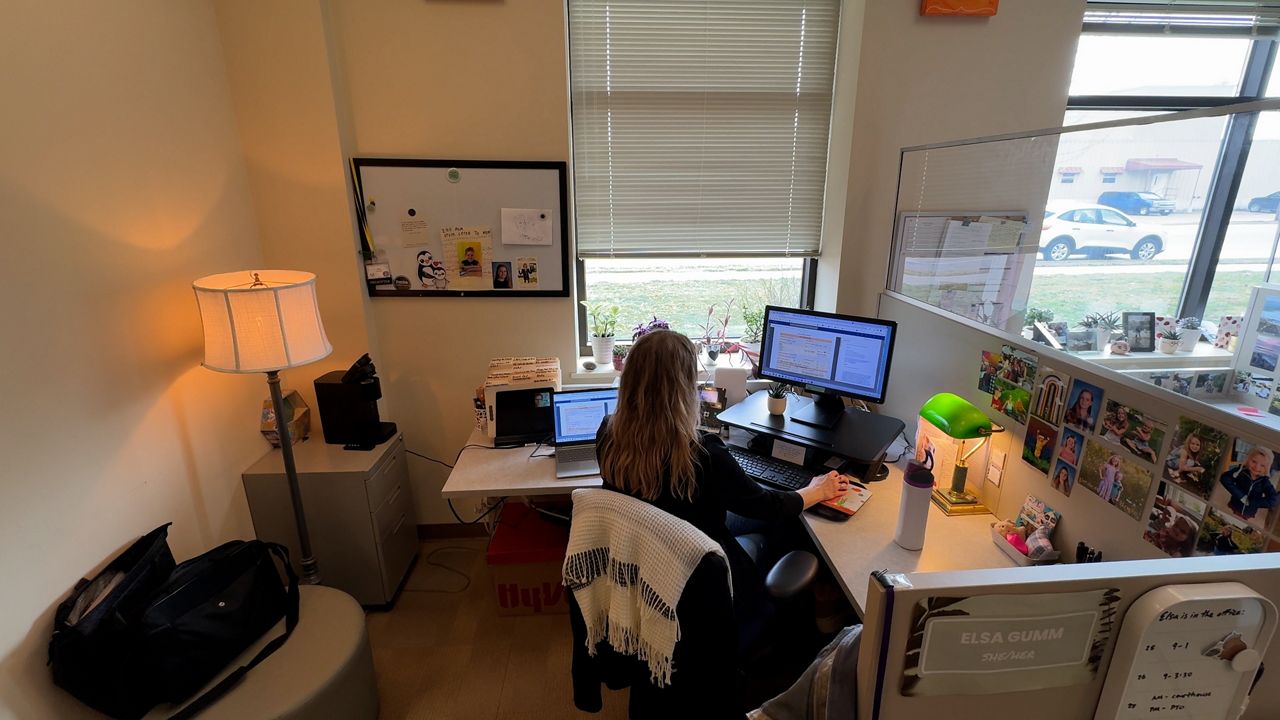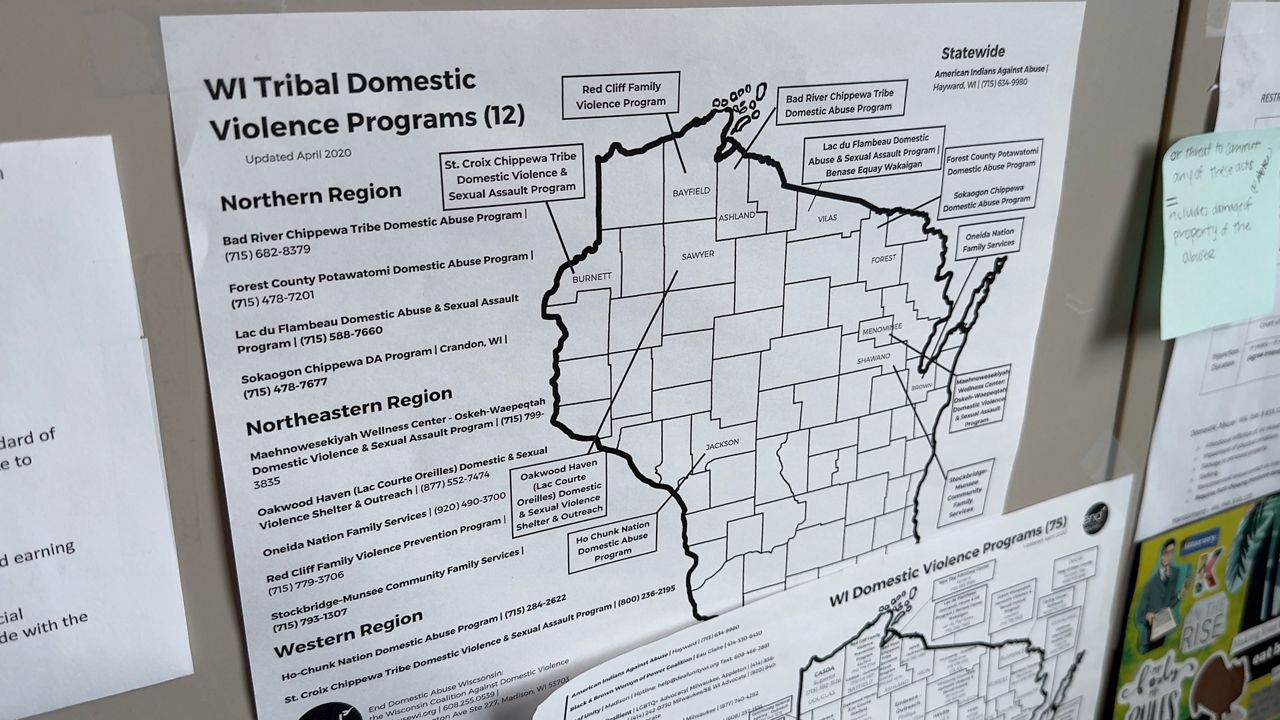MADISON, Wis. — Jillian Young is a court watch volunteer for Domestic Abuse Intervention Services or DAIS.
“I am very passionate about domestic violence, particularly the barriers they have to overcome in the legal system,” said Young.
Young attends court hearings for people that are struggling with domestic violence and fighting for a divorce or restraining order.

She said she takes notes on everything that happens within the courtroom with the main goal of holding courtroom professionals accountable.
“If I could have anything come from this, it is more consistency. We do see a lot of inconsistencies across the courtrooms, there is 17 different branches,” said Young.
Young said all judges work on restraining order hearings but they don’t work on them often.
She said this often leads to an unfamiliarity with the laws surrounding domestic violence.
“That is why it is critical to have an eye on the courtroom and accountability to look towards a system change,” said Young. “It is really just about having a more equitable courtroom.”

The DAIS Legal Advocacy Program provides support, information, advocacy and court accompaniment to people who are experiencing intimate partner violence or stalking. DAIS legal services include assistance with restraining orders, family law, criminal law, immigration and other legal matters.
Elsa Gumm is a legal advocate for DAIS.
She said taking legal action against an aggressor can not only be mentally exhausting, but it can also be financially taxing.
Gumm said hiring an attorney can cost thousands of dollars and many people don’t have the money to pursue legal action.
She said DAIS can provide clients with other possible options.

“We can help with forms filing and we can help them navigate the steps involved in for example, a divorce or separation,” said Gumm. “Similarly with civil injunctions, we can help clients navigate the process even if they don’t have legal representation.”
Gumm said for many clients, DAIS is an introduction into how the legal system works and getting their cases started.
She said other times she works with clients for months or even years.
“Clients will often then have post judgment legal action as well, so often they are engaging with their harm-doer for years after a separation,” said Gumm.
Young said volunteers like herself and legal advocates are often the only support system clients have in the courtroom.
“They are telling a story that they maybe have never told anyone else,” said Young. “The judge may be the first person hearing a story of abuse and how they are received and supported is critical.”
She said when it comes to domestic violence, abuse is not just physical, it is also mental and emotional.
For her, she said it is easy to see the red flags of someone who is dealing with domestic violence.
She said judges often miss these things and deny restraining orders.
“They say, ‘You are getting a divorce, why won’t it end there,’” said Young. “Well, that does not support what research tells us about domestic violence; when someone is leaving a relationship when they are getting a divorce, that is actually the most dangerous time.”
She said she hopes in the future, courtrooms will have more compassion for people struggling with domestic violence.
She said she would also like to see more consistency in the courtroom and understanding, as she said it is very challenging for people to come forward and talk about these things.
DAIS is always looking for more court watch volunteers.
If you would like to get involved, you can follow this link to fill out the application.



